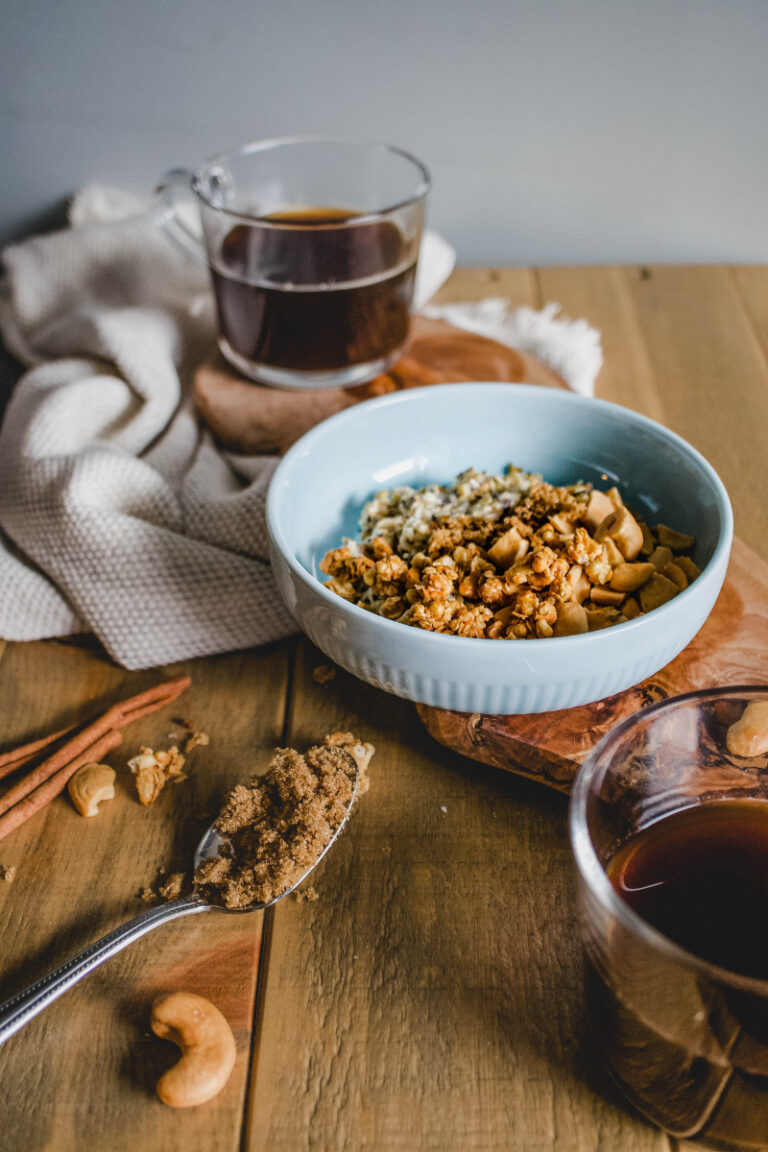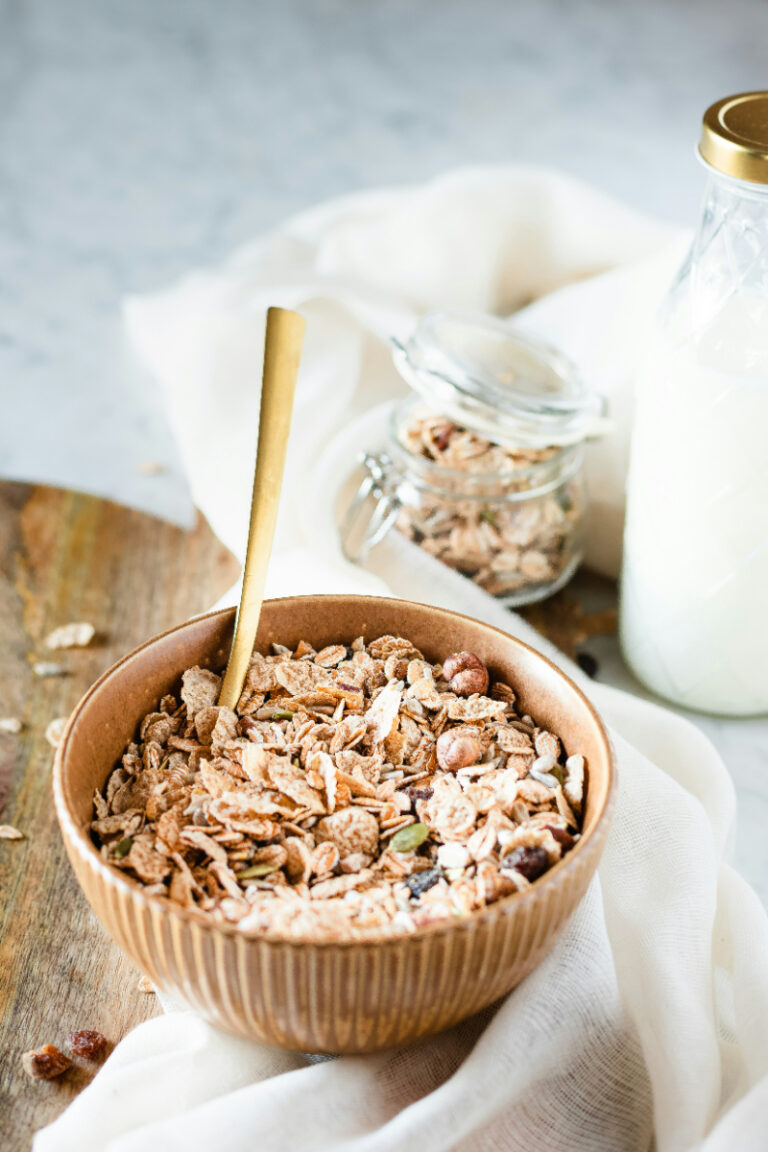How Many Carbs Are in a Cup of Flour? Find Out Here!
Are you wondering how many carbs are in a cup of flour? Whether you’re on a low-carb diet or just trying to keep track of your carb intake, it’s important to know how many carbs are in the foods you eat. Flour is a staple ingredient in many recipes, but how many carbs does it actually contain?
The answer depends on the type of flour you’re using. All-purpose flour, which is the most commonly used type of flour in baking, contains around 95 grams of carbs per cup. However, other types of flour, such as almond flour, coconut flour, and soy flour, contain significantly fewer carbs per cup. If you’re looking to reduce your carb intake, these alternative flours may be a better choice for you.
It’s important to keep in mind that not all carbs are created equal. Some carbs, such as those found in whole grains, fruits, and vegetables, are considered healthy and provide your body with important nutrients. Other carbs, such as those found in sugar and processed foods, are considered unhealthy and can contribute to weight gain and other health problems. When it comes to flour, choosing a whole grain flour can provide you with more nutrients and fiber than white flour.

Carbohydrate Content in Flour
If you are watching your carbohydrate intake, it is important to know how many carbs are in a cup of flour. The amount of carbs in flour can vary depending on the type of flour you are using. In this section, we will discuss the carbohydrate content in all-purpose flour, whole-wheat flour, and gluten-free flour.
Carbs in All-Purpose Flour
All-purpose flour is a common type of flour used in many recipes. One cup of all-purpose flour contains approximately 95 grams of carbohydrates. This includes 3.4 grams of fiber and 0.3 grams of sugar. It is important to note that the fiber in flour is not digestible, so it does not contribute to the total carbohydrate count.
Carbs in Whole-Wheat Flour
Whole-wheat flour is a healthier alternative to all-purpose flour, as it contains more fiber and nutrients. One cup of whole-wheat flour contains approximately 87 grams of carbohydrates. This includes 16 grams of fiber and 2 grams of sugar. The fiber in whole-wheat flour is digestible, so it does contribute to the total carbohydrate count.
Carbs in Gluten-Free Flour
Gluten-free flour is a popular choice for those with gluten sensitivities or celiac disease. The carbohydrate content in gluten-free flour can vary depending on the type of flour used. For example, one cup of almond flour contains approximately 24 grams of carbohydrates, while one cup of coconut flour contains approximately 24 grams of carbohydrates. It is important to read the nutrition label on the package to determine the exact carbohydrate content of your gluten-free flour.
In summary, the carbohydrate content in flour can vary depending on the type of flour you are using. All-purpose flour contains the highest amount of carbohydrates, while whole-wheat flour contains more fiber and nutrients. Gluten-free flour can also be a good option, but it is important to read the nutrition label to determine the exact carbohydrate content.
Measuring Flour
When it comes to baking, measuring flour accurately is crucial. Too much flour can result in dense and dry baked goods, while too little flour can lead to flat and crumbly results. Here are a few tips to help you measure flour correctly:

Use a Scale
The most accurate way to measure flour is by weight, using a kitchen scale. One cup of all-purpose flour weighs approximately 120 grams. Using a scale ensures that you are using the correct amount of flour and will result in consistent baking results.
Spoon and Level
If you don’t have a kitchen scale, you can measure flour using the spoon and level method. First, fluff up the flour in its container with a fork or spoon. Then, use a spoon to scoop flour into the measuring cup until it is overflowing. Use a straight edge, like a knife, to level off the top of the measuring cup. This method helps to prevent packing the flour into the measuring cup, which can result in too much flour being used.
Avoid Scooping
One common mistake when measuring flour is to scoop the measuring cup directly into the flour container. This can result in too much flour being used, as the flour becomes compacted. Instead, use a spoon to scoop flour into the measuring cup, then level it off.
By measuring flour accurately, you can ensure that your baked goods turn out perfectly every time.
Impact of Flour on Blood Sugar
Flour is a staple ingredient in many recipes, but it can have an impact on your blood sugar levels. The glycemic index of flour can vary depending on the type of flour used, which can affect how quickly your body absorbs the carbohydrates in the flour.
Glycemic Index of Flour
The glycemic index (GI) is a measure of how quickly carbohydrates in food are absorbed by the body and converted into glucose. Foods with a high GI are quickly absorbed, causing a rapid increase in blood sugar levels. Foods with a low GI are absorbed more slowly, causing a slower and more gradual increase in blood sugar levels.
Different types of flour have different GI values. For example, white flour has a high GI value, while whole wheat flour has a lower GI value. This is because whole wheat flour contains more fiber and other nutrients that slow down the absorption of carbohydrates.
Here are some common types of flour and their estimated GI values:
| Flour Type | Estimated GI Value |
|---|---|
| White Flour | 85 |
| Whole Wheat Flour | 70 |
| Rye Flour | 65 |
| Oat Flour | 55 |
| Coconut Flour | 45 |
As you can see, coconut flour has the lowest estimated GI value, making it a good choice for those looking to avoid spikes in blood sugar levels. However, it is important to note that coconut flour has a high fat content and should be used in moderation.
In conclusion, the type of flour you use can have an impact on your blood sugar levels. Choosing flours with a lower GI value, such as whole wheat flour or oat flour, can help to prevent spikes in blood sugar levels.
Flour Alternatives and Carbs
If you’re looking to reduce your carb intake, you might want to consider using alternative flours. Here are a few options and their approximate carb counts per cup:
- Almond flour: 24 grams net carbs
- Coconut flour: 24 grams net carbs
- Chickpea flour: 35 grams net carbs
- Soy flour: 16 grams net carbs
- Flaxseed meal: 6 grams net carbs
As you can see, some alternative flours have fewer carbs than traditional wheat flour, while others have more. It’s important to keep in mind that using alternative flours may require some adjustments to your recipes, as they can behave differently than wheat flour in terms of texture and moisture.
If you’re looking to reduce your carb intake, you might also want to consider using low-carb baking techniques. For example, you can use almond or coconut flour to make a crust for a low-carb quiche or pie. You can also use flaxseed meal as a binder in place of breadcrumbs in meatballs or meatloaf.
Overall, using alternative flours can be a great way to reduce your carb intake, but it’s important to choose the right flour for your recipe and make any necessary adjustments.






